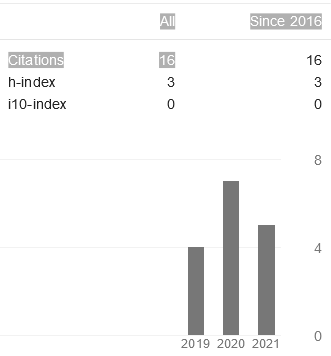The Relationship of Self Control and FOMO with the Tendency of Social Media Addiction in Korean Pop Fans
Abstract
This study aims to determine the relationship between self-control and FOMO with social media
addiction tendencies in Korean pop fans. This research is a quantitative research, with a correlational
research type. The subject of this research is Korean pop fans. The sample in this study was 100
respondents using accidental sampling technique. Data collection used a questionnaire on the Social
Media Addiction Scale (SMAS), self-control scale, and the Online Fear of Missing Out (ON-FOMO)
scale. Data analysis used multiple linear regression analysis test. The results of this study indicate that
there is a positive significant relationship between the self-control variable and social media addiction
tendencies with a significance value of 0.037, and FOMO with social media addiction tendencies with
a significance value of 0.000 <0.05. Then together the variables of self-control and FOMO have a
relationship with the tendency of social media addiction with a significance value of 0.000 and an
effect of 0.373 <0.05 or 37.3%, the remaining 62.7% is influenced by other variables outside this
study, so the hypothesis is accepted. The conclusion in this study is that there is a relationship between
self control and FOMO with the tendency of social media addiction among Korean pop fans.
Copyright (c) 2023 Hesti Sulistyawati, Hamim Rosyidi

This work is licensed under a Creative Commons Attribution-ShareAlike 4.0 International License.
Authors who publish with us agree to the following terms:
- Authors retain copyright and grant the publisher right of first publication with the work simultaneously licensed under a Creative Commons Attribution License that allows others to share the work with an acknowledgement of the work's authorship and initial publication in this proceeding.
- Authors are able to enter into separate, additional contractual arrangements for the non-exclusive distribution of the proceeding's published version of the work (e.g., post it to an institutional repository or publish it in a book), with an acknowledgement of its initial publication in this proceeding.
- Authors are permitted and encouraged to post their work online (e.g., in institutional repositories, pre-prints sites or on their website) prior to and during the submission process, as it can lead to productive exchanges, as well as earlier and greater dissemination of published work





_page-00011.jpg)
